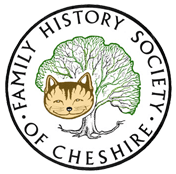More speaker and information on the Family History Federation: Really Useful Family History Show on 14th November:
Ask the Experts Announced
FHF are pleased to be able to offer expert advice at the show from a wide range of family history disciplines. A
At the FHF REALLY USEFUL Family History Show advice will be provided by professional genealogists who are members and associates of AGRA (Association of Genealogists and Researchers in Archives) plus information and assistance from specialist family history society members.
They are available to help with questions you may have about resolving research challenges and general assistance on a wide range of family history topics.
Learn more about this service NOW at https://www.fhf-reallyuseful.com/ask-the-experts/
More Speakers also announced -
IAN WALLER - The railways were one of the largest employers in the United Kingdom and some of the 900 or so pre 1923 companies have left a legacy of staff records. This talk examines how those records can help piece together the career of a railway worker using a variety of records up to grouping in 1923 and nationalisation in 1948. You may even have railway employees that you did not realise. They also employed merchant seamen, chambermaids and artists! Many of us will have railway navvies amongst our ancestry and these were not employed by the railway companies but by the contractors building the railway network. Part of the talk is devoted to finding their details, Ian's talk is called - On the Right Track – Railway Ancestors
JIM RYAN - This fully illustrated talk will outline Irish Catholic records and the history of their creation and survival. It will detail the format and content of surviving records and where they be accessed. Ireland has historically been a predominantly Catholic country. However, for historical reasons, the earliest Catholic church record is for 1670, and records are sparse until the early 19th century. Nevertheless they are the only evidence of most 18th and 19th century Irish people. It is therefore useful to understand the history of Irish Catholics, and the political and social factors which affected record-keeping. The talk will be a comprehensive account of Irish Catholic records and the historical events which affected their creation and survival. It will cover which records survive and what they contain; why the availability of records varies between regions and parishes, and other factors. It also covers where the records may now be accessed; which have been indexed, and other useful background. The talk is titles - Irish Catholic Church Records
EMMA MAXWELL - A look at the sources you will need to begin your Scottish family history research. This presentation will focus on ScotlandsPeople by showing you how to get the best out of the website and how to interpret the records you find. We will also look at some other sources you will need to research your Scottish family tree. This talk is titled - Beginning Scottish Research
JEANETTE ROSENBERG - The presentation will cover both UK and overseas resources and will mention specialist Jewish community records and archives and how to find them, Jeanette's talk is called - An introduction to Jewish Genealogy Sources and Resources
Time is running out so why not take advantage of the EARLY BIRD ticket offer.
Don't delay book your ticket today Early Bird ticket Offer valid until midnight (GMT) on 18th October 2020






